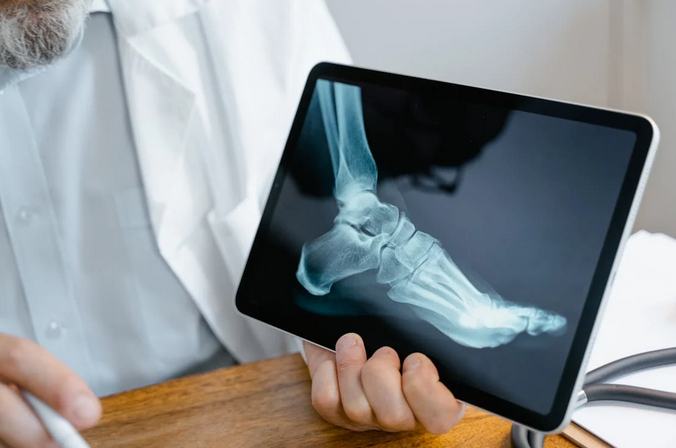
How to Keep Your Bones Strong: Essential Tips for Maintaining Bone Health
Bones are the unsung heroes of our bodies. They provide structure and support, allowing us to move freely and live actively. Yet, we often overlook their health until a fracture or injury reminds us of their importance. As we age, maintaining strong bones becomes crucial for preventing osteoporosis and fractures. But worry not! There are simple yet effective ways to keep those bones healthy and robust throughout your life. Whether you’re an athlete in training or simply looking to improve your overall well-being, understanding how to nurture your bone health can make all the difference. Let’s dive into essential tips that will empower you on your journey to stronger bones.
The Importance of Bone Health
Bone health is fundamental to our overall well-being. Strong bones provide the framework for our bodies, enabling movement and mobility. They protect vital organs and store essential minerals like calcium. As we age, bone density naturally decreases. This decline can lead to conditions such as osteoporosis, making fractures more likely even from minor falls or accidents. Healthy bones contribute not only to physical stability but also to maintaining a good quality of life. Moreover, strong bones play a crucial role in preventing chronic pain associated with injuries or degenerative diseases. By prioritizing bone health early on, we can foster strength and resilience that lasts through the years.
Factors That Can Affect Bone Health

Bone health is influenced by a variety of factors, both intrinsic and extrinsic. Genetics plays a significant role; if your family has a history of osteoporosis or fractures, you might be at higher risk. Age is another critical factor. As we grow older, bone density tends to decrease. This natural decline can lead to an increased likelihood of injuries. Lifestyle choices shouldn’t be overlooked either. Sedentary habits weaken bones over time, while excessive alcohol consumption may hinder the body’s calcium absorption.
Diet and Nutrition for Strong Bones
A balanced diet plays a pivotal role in maintaining strong bones. Calcium is the cornerstone mineral for bone health, so it’s vital to include dairy products like yogurt and cheese, or plant-based sources such as leafy greens and fortified alternatives. Vitamin D works hand-in-hand with calcium. It enhances calcium absorption and can be found in fatty fish, egg yolks, and sunlight exposure. Don’t overlook magnesium; it supports calcium metabolism. Nuts, seeds, whole grains, and legumes are great sources of this essential nutrient. Additionally, vitamin K contributes to bone density. Incorporate foods like broccoli and Brussels sprouts into your meals for an extra boost.
The Role of Exercise in Maintaining Bone Strength
Exercise plays a crucial role in maintaining bone strength. When you engage in weight-bearing activities, your bones respond by becoming denser and stronger. This process is essential for preventing conditions like osteoporosis. Activities such as running, walking, dancing, and even resistance training can stimulate bone formation. The stress placed on bones during these exercises encourages the body to build more bone tissue. Additionally, balance and flexibility exercises contribute to overall stability. These workouts help reduce the risk of falls that could lead to fractures. Yoga and tai chi are excellent examples of this type of movement.
Supplements and Vitamins for Strong Bones

Supplements and vitamins play a pivotal role in supporting bone health. Calcium is the most well-known mineral for strong bones. It helps maintain bone density, especially as we age. Vitamin D is equally crucial. It aids calcium absorption, ensuring your body effectively utilizes this vital mineral. Without enough vitamin D, even high calcium intake may not be effective. Magnesium also deserves attention. This essential mineral supports bone structure and can help prevent osteoporosis when combined with calcium and vitamin D.
Lifestyle Habits That Can Contribute to Good Bone Health
Maintaining good bone health goes beyond diet and exercise; lifestyle habits play a crucial role, too. One significant factor is smoking. The chemicals in cigarettes can weaken bones, increasing the risk of fractures. Quitting can have immediate benefits for bone strength. Alcohol consumption should also be monitored. Excessive drinking interferes with calcium absorption and may lead to osteoporosis over time. Moderation is key here. Sunlight exposure contributes positively as well. Vitamin D from sunlight helps your body absorb calcium effectively, promoting stronger bones. Aim for some outdoor time each day.
Taking proactive steps to maintain bone health is essential for a vibrant life. By understanding the significance of strong bones, you can take control of your well-being. Incorporating a balanced diet rich in calcium and vitamin D, along with regular exercise, sets a solid foundation. Lifestyle habits also play an important role. Avoiding smoking and limiting alcohol consumption can significantly improve your bone density over time. Additionally, supplements may provide that extra boost if your dietary intake isn’t sufficient.


